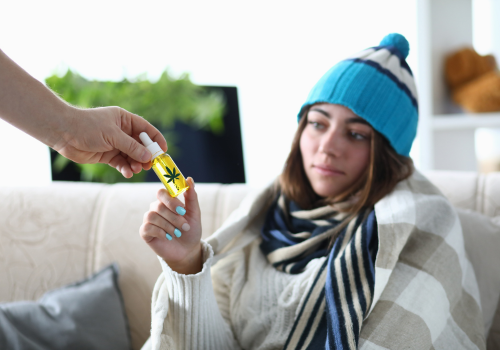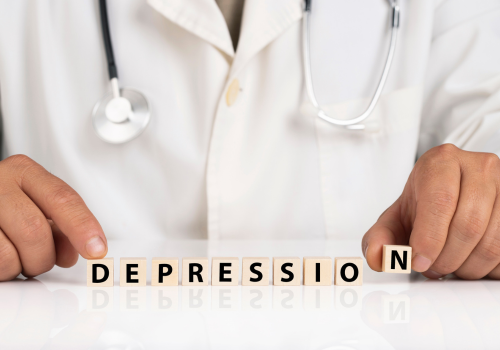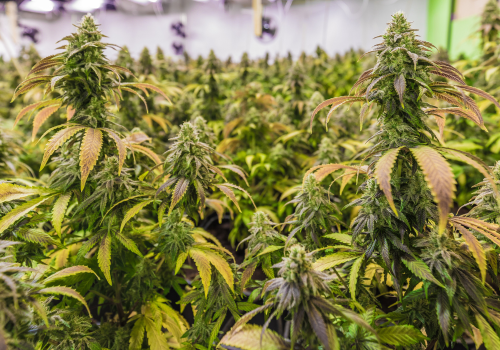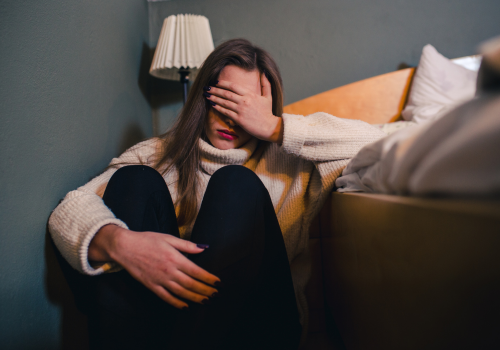 In recent years, cannabidiol (CBD) oil has emerged as a potential natural remedy for various mental health conditions, including depression. With the prevalence of depression on the rise, more and more people are seeking alternative treatments to supplement or replace traditional therapies. In this comprehensive guide, we will explore how CBD oilcan potentially help alleviate depressive symptoms and delve into the scientific evidence supporting its use.
In recent years, cannabidiol (CBD) oil has emerged as a potential natural remedy for various mental health conditions, including depression. With the prevalence of depression on the rise, more and more people are seeking alternative treatments to supplement or replace traditional therapies. In this comprehensive guide, we will explore how CBD oilcan potentially help alleviate depressive symptoms and delve into the scientific evidence supporting its use.
Introduction to CBD Oil and Depression
What is CBD oil?
CBD oil is a natural extract derived from the cannabis plant. It is one of the many cannabinoids found in the plant and is known for its potential therapeutic benefits without the psychoactive effects commonly associated with marijuana use. This is because CBD does not contain tetrahydrocannabinol (THC), the compound responsible for the "high" associated with cannabis.
The prevalence of depression
Depression is a widespread mental health issue that affects millions of people worldwide. According to the World Health Organization (WHO), more than 264 million people suffer from depression, making it the leading cause of disability globally. Traditional treatments for depression include medications, such as antidepressants, and psychotherapy. However, some individuals may not respond well to these treatments or may experience unpleasant side effects.
 The potential of CBD oil for depression treatment
The potential of CBD oil for depression treatment
Due to the limitations of conventional treatments, interest in alternative therapies like CBD oil has grown. Emerging research suggests that CBD oil may have a positive impact on depression and anxiety symptoms, potentially offering a more natural and holistic approach to managing mental health.
How CBD Oil Works for Depression
Interaction with the endocannabinoid system
The human body has an intricate endocannabinoid system (ECS) responsible for regulating various physiological and cognitive processes, including mood, appetite, and pain sensation. CBD interacts with the ECS by enhancing the activity of the body's natural cannabinoids, which may help improve mood and reduce anxiety.
Role of serotonin
Serotonin is a neurotransmitter responsible for regulating mood, appetite, and sleep. CBD has been shown to interact with serotonin receptors in the brain, potentially improving mood and reducing anxiety by boosting serotonin levels.
Neuroprotective properties
CBD has demonstrated neuroprotective properties, which means it can help protect nerve cells from damage. This may be particularly relevant for depression since research suggests that inflammation and oxidative stress can contribute to the development and progression of the condition. By reducing inflammation and promoting neural health, CBD may help alleviate depressive symptoms.
 Scientific Evidence on CBD Oil and Depression
Scientific Evidence on CBD Oil and Depression
Animal studies
Several animal studies have shown promising results for the use of CBD in treating depression. Research has demonstrated that CBD may have antidepressant-like effects in mice, reducing depressive behavior and anxiety in various tests.
Human clinical trials
While large-scale human clinical trials are still needed to fully understand the potential benefits of CBD oil for depression, preliminary studies suggest that it may help alleviate symptoms. A small study conducted in 2018 found that CBD significantly reduced anxiety and improved mood in participants with social anxiety disorder.
Limitations and ongoing research
It is crucial to note that research on CBD oil and depression is still in its early stages. More extensive clinical trials and long-term studies are necessary to establish CBD oil as an effective treatment for depression fully. However, the existing research offers a promising foundation for future studies and potential therapeutic applications.
How to Use CBD Oil for Depression
Choosing the right CBD oil product
There are various CBD oil products on the market, including tinctures, capsules, and vape oils. It is essential to choose a high-quality, reputable product with third-party lab testing to ensure that you are getting a safe and effective CBD oil for depression.
 Dosage and administration
Dosage and administration
Determining the optimal dosage of CBD oil for depression can be challenging, as it varies from person to person depending on factors such as body weight, individual response, and the severity of the symptoms. It is recommended to start with a low dose, typically between 5-15 mg per day, and gradually increase the amount until the desired effect is achieved. Always consult with a healthcare professional before beginning any new treatment regimen.
Monitoring effects and adjusting the regimen
It is essential to monitor the effects of CBD oil on your depressive symptoms and adjust the dosage accordingly. Some individuals may experience positive results within a few days, while others might take a few weeks to notice improvements. If you do not experience the desired effects or if side effects occur, consider consulting with your healthcare provider for guidance on adjusting your CBD oil regimen.
Potential Side Effects and Precautions
Common side effects
Although CBD oil is generally considered safe and well-tolerated, some individuals may experience side effects such as drowsiness, dry mouth, dizziness, or changes in appetite. Most of these side effects are mild and tend to subside with continued use or dosage adjustment.
Drug interactions
CBD oil may interact with certain medications, including prescription antidepressants, resulting in potentially harmful effects. Always consult with your healthcare provider before using CBD oil in combination with any other medications.
 Who should avoid CBD oil
Who should avoid CBD oil
Pregnant or breastfeeding women and individuals with liver problems should avoid using CBD oil for depression, as its safety and efficacy have not been established in these populations. Additionally, those with a history of allergic reactions to cannabis products should exercise caution when using CBD oil.
Embracing a Holistic Approach to Depression
Lifestyle changes
In addition to considering CBD oil for depression, it is crucial to adopt a holistic approach that includes lifestyle changes. Regular exercise, a balanced diet, sufficient sleep, and stress reduction techniques can all contribute to improved mental health and well-being.
Complementary therapies
Complementary therapies, such as acupuncture, yoga, and meditation, can also provide additional support in managing depression. These practices may help to alleviate stress, promote relaxation, and improve overall mood.
Traditional treatment options
While CBD oil may offer potential benefits for depression, it should not replace traditional treatment options such as medication and psychotherapy. Instead, consider using CBD oil as a complementary therapy alongside your prescribed treatment plan, always in consultation with your healthcare provider.
Final Thoughts on CBD Oil and Depression
The potential benefits of CBD oil for depression are encouraging, with emerging research suggesting its potential to alleviate symptoms and improve mental well-being. While more extensive clinical trials and long-term studies are needed, the existing evidence offers a promising foundation for future research and potential therapeutic applications.
It is crucial to consider CBD oil as a complementary therapy, rather than a replacement for traditional treatment options such as medication and psychotherapy. Always consult with a healthcare professional before incorporating CBD oil into your depression treatment plan, and be sure to adopt a holistic approach that includes lifestyle changes and complementary therapies for the best possible outcomes.
Frequently Asked Questions (FAQs) about CBD Oil for Depression
Q1: What is the best CBD oil dosage for depression?
A1: The optimal dosage varies between individuals and depends on factors such as body weight, individual response, and symptom severity. Start with a low dose (5-15 mg per day) and gradually increase it until the desired effect is achieved.
Q2: How long does it take for CBD oil to work for depression?
A2: Some individuals may experience improvements within a few days, while others may take a few weeks to notice positive effects. Be patient and monitor your symptoms closely while adjusting your dosage as needed.
Q3: Can I use CBD oil along with my prescribed antidepressants?
A3: Consult with your healthcare provider before using CBD oil in combination with prescription antidepressants, as potentially harmful interactions may occur.
Q4: Is CBD oil legal for depression treatment?
A4: CBD oil derived from hemp with less than 0.3% THC is legal in most states in the United States. However, regulations and restrictions vary, so it is essential to research the laws in your area.
Q5: Can I develop a dependence on CBD oil for depression treatment?
A5: CBD oil is considered non-addictive and has a low potential for abuse or dependence. However, it is crucial to monitor your symptoms and follow the recommended dosage guidelines to ensure safe and effective use.
Q6: Can I give CBD oil to my teenager for depression?
A6: Consult with a healthcare professional before administering CBD oil to adolescents or children, as the safety and efficacy of CBD oil for younger individuals have not been fully established.


